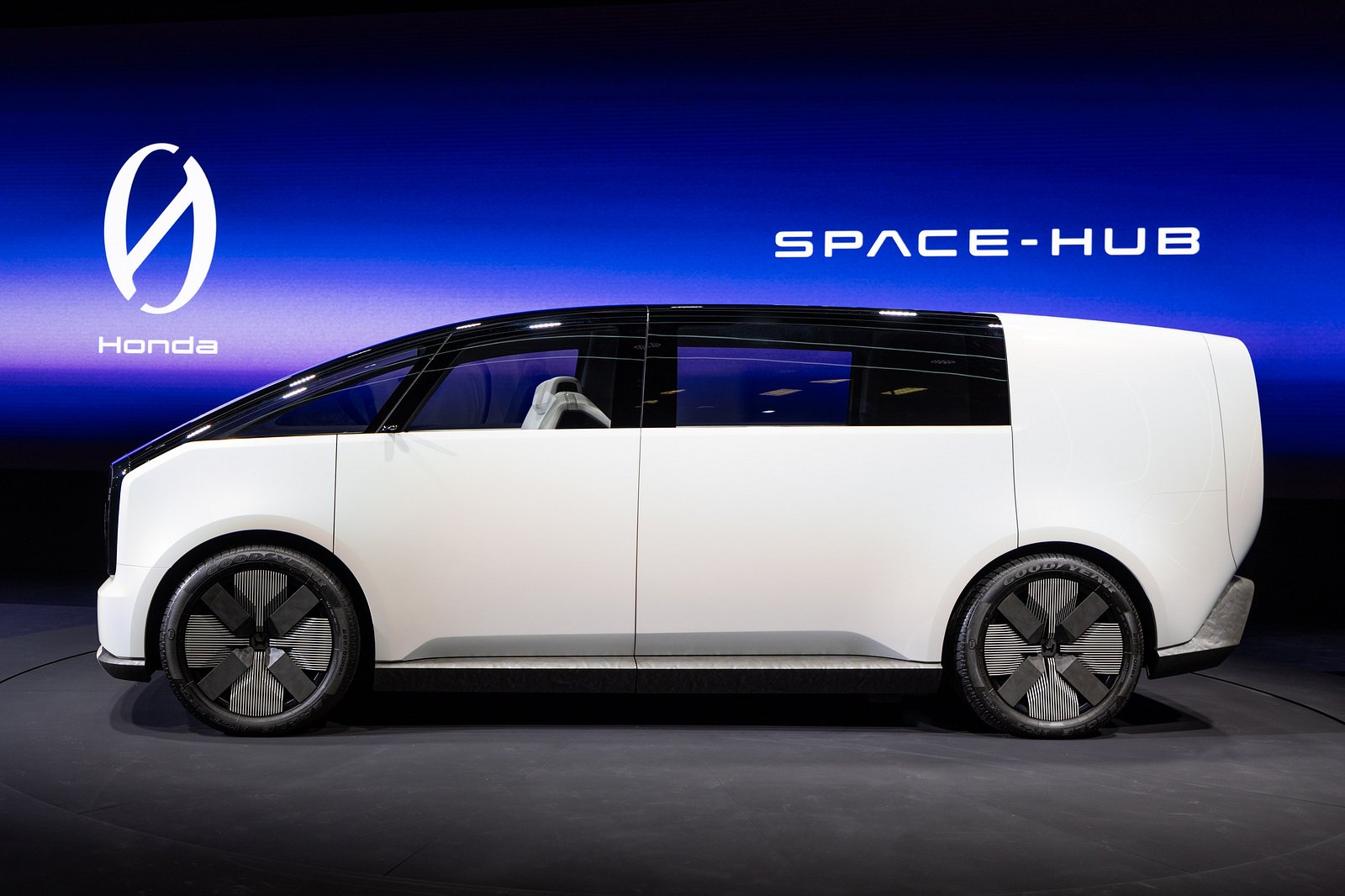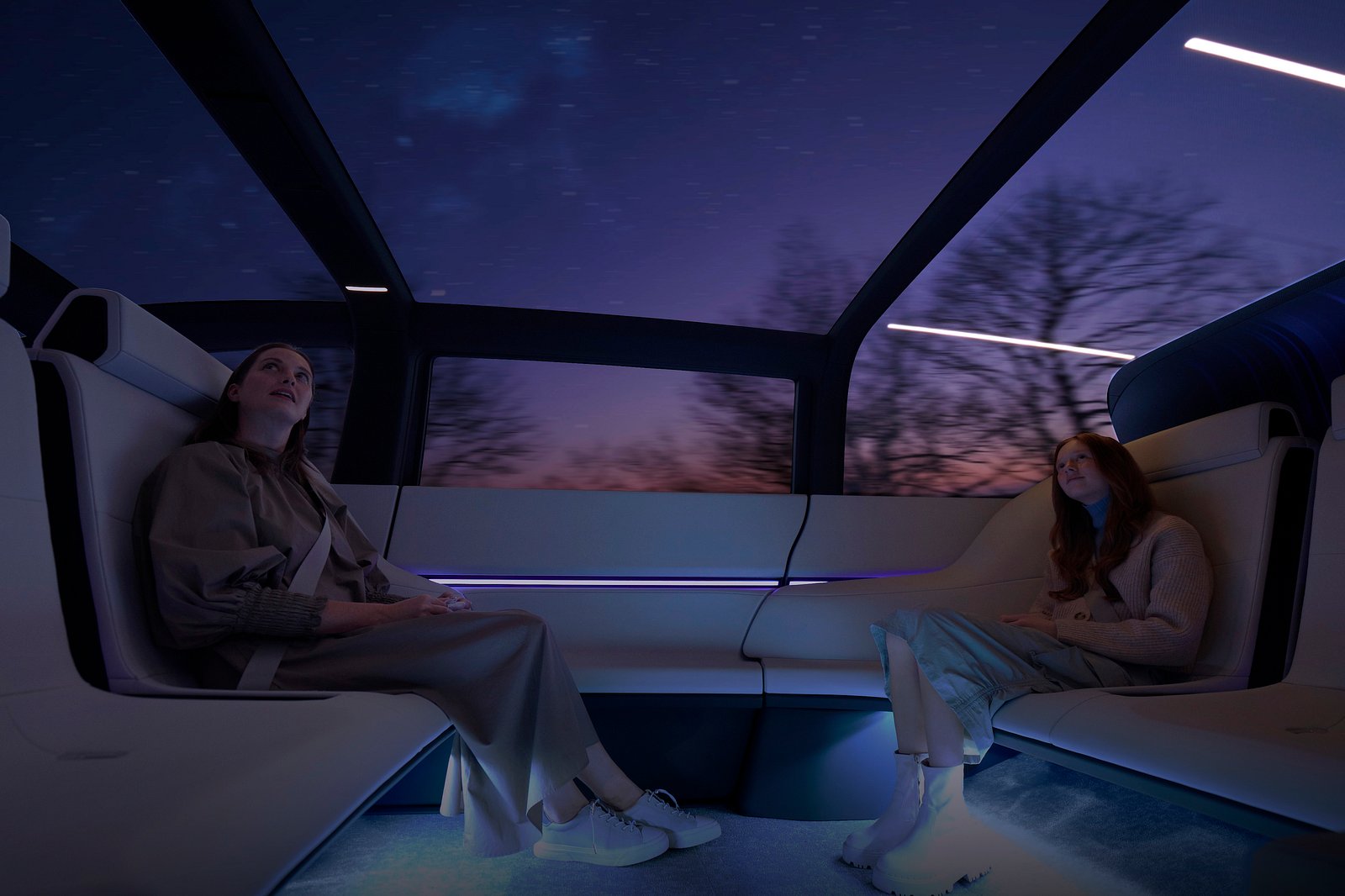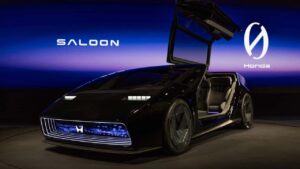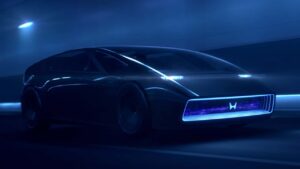Time-travel-worthy appearance captured in this collection.
.At the CES 2024 event, Honda not only unveiled its highly anticipated electric sedan co-designed with Sony, but also took the opportunity to showcase two additional concept cars with global appeal. These new concepts, the Honda Saloon and Space-Hub, are part of the revolutionary Honda 0 Series which is set to hit the market in 2026 as fully realized production models.While the partnership with Sony has grabbed the headlines, the introduction of these two innovative concepts further solidifies Honda’s commitment to pushing the boundaries of automotive design and technology. The Honda Saloon Concept boasts cutting-edge features such as an aerodynamic exterior and advanced autonomous driving capabilities, making it a futuristic vision of mobility.The Honda Saloon Concept, with its sleek and streamlined appearance, embodies the essence of modern elegance and promises an exhilarating driving experience. Equally impressive is the Space-Hub Concept, which offers a spacious and versatile interior layout, perfect for both daily commutes and long road trips.With the launch of the Honda 0 Series just around the corner, car enthusiasts worldwide can look forward to experiencing the next generation of Honda vehicles. So mark your calendars for 2026 and get ready to be amazed by the impressive designs and innovations from Honda. Honda made headlines at CES
Let’s begin by discussing the Saloon Concept, which is expected to be sold as an electric sedan in North America. It could potentially serve as the future replacement for the Honda Accord. Built on a bespoke EV platform, this vehicle follows Honda’s approach of maximum efficiency and minimal use of parts.
Put simply, it boasts incredibly vast and compact dimensions, allowing for a generous amount of room inside. The aesthetic is strikingly modern yet evokes a sense of nostalgia. However, we do not believe that the final version will resemble this concept, particularly with regards to the falcon wing doors that allow access to both the front and back seats. However, the prototype does introduce a fresh Honda H logo, soon to feature on upcoming electric vehicles and replacing the current emblem that has been in use since 1981.
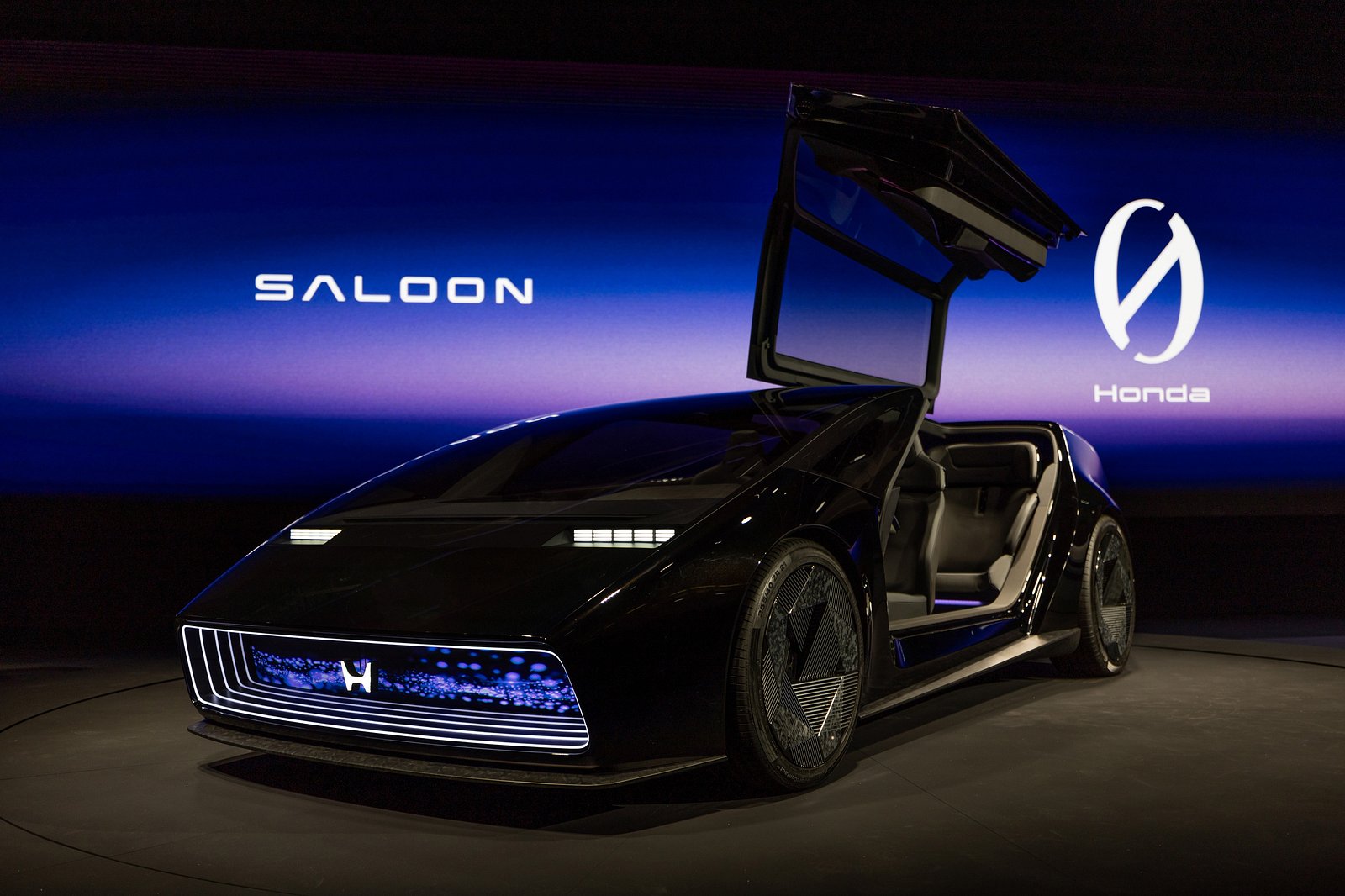
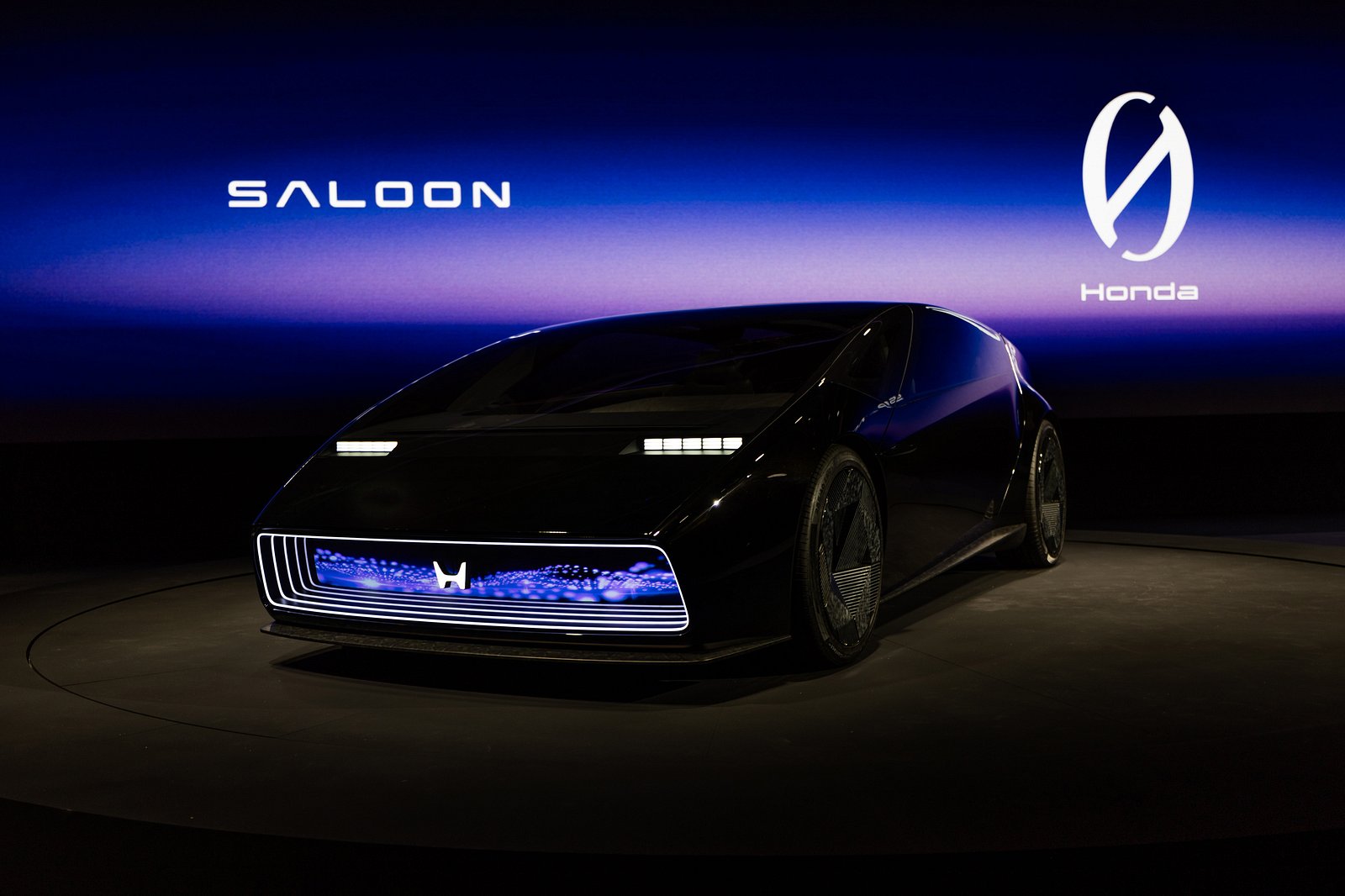
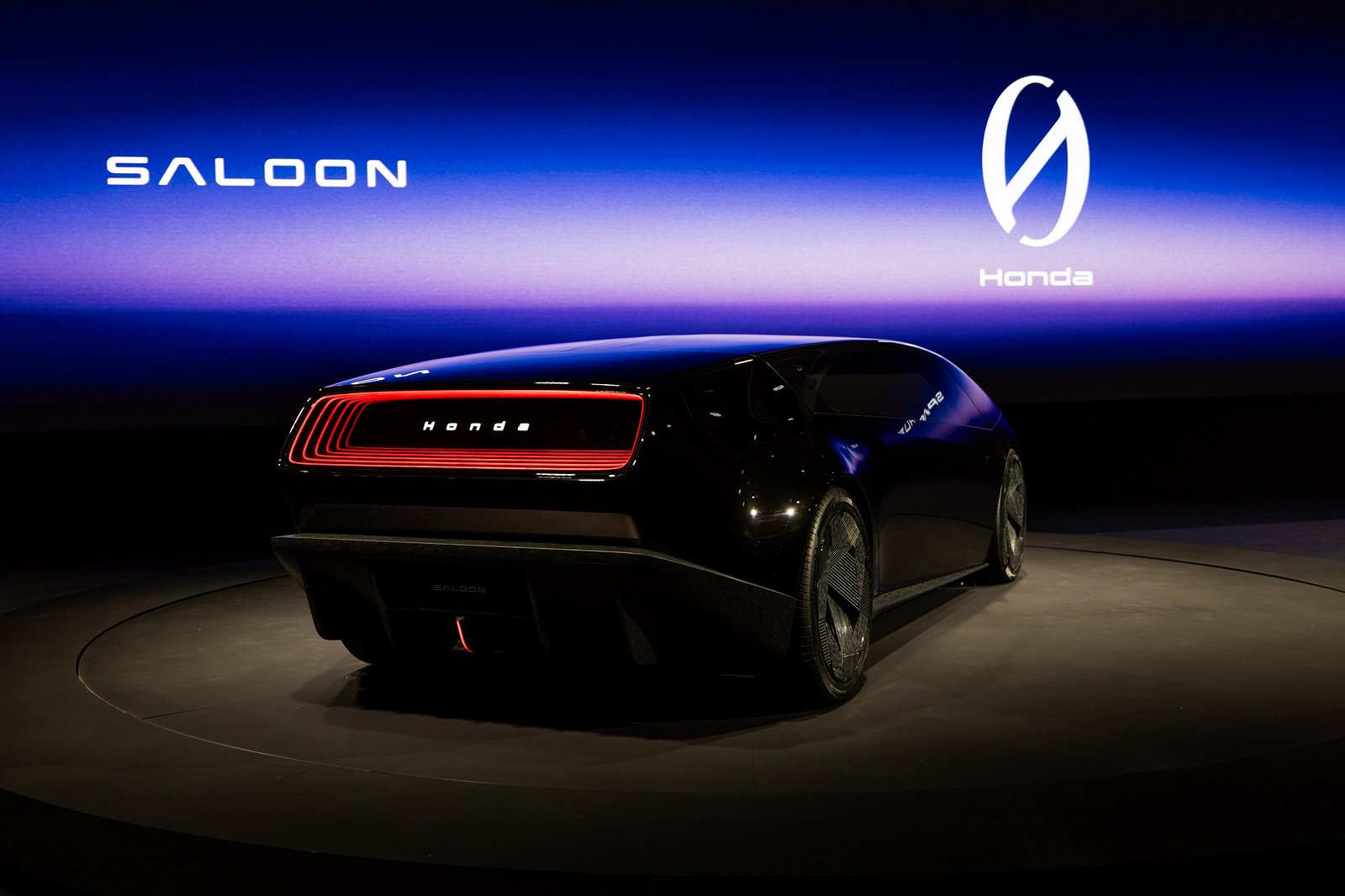

According to Honda, the Saloon model will incorporate sustainable materials in both its interior and exterior design, although no specific details were provided regarding its range or performance. Inside the vehicle, there is a pillar-to-pillar instrument panel equipped with a human-machine interface (HMI). Similar to the Tesla Cybertruck, the Saloon will also utilize steer-by-wire technology and offer posture control to enhance the driving experience and bring about a sense of joy for owners.
According to Toshihiro Mibe, the Global CEO of Honda, the desired mobility is not simply a continuation of the current trend of “thick, heavy, but smart” electric vehicles (EVs). Instead, Honda aims to establish a brand new value that is built upon the principles of being thin, light, and wise. This will serve as the foundation for their innovative Honda 0 EV series, which will elevate the experience of mobility to a whole new level and bring about even more joy and freedom for users.
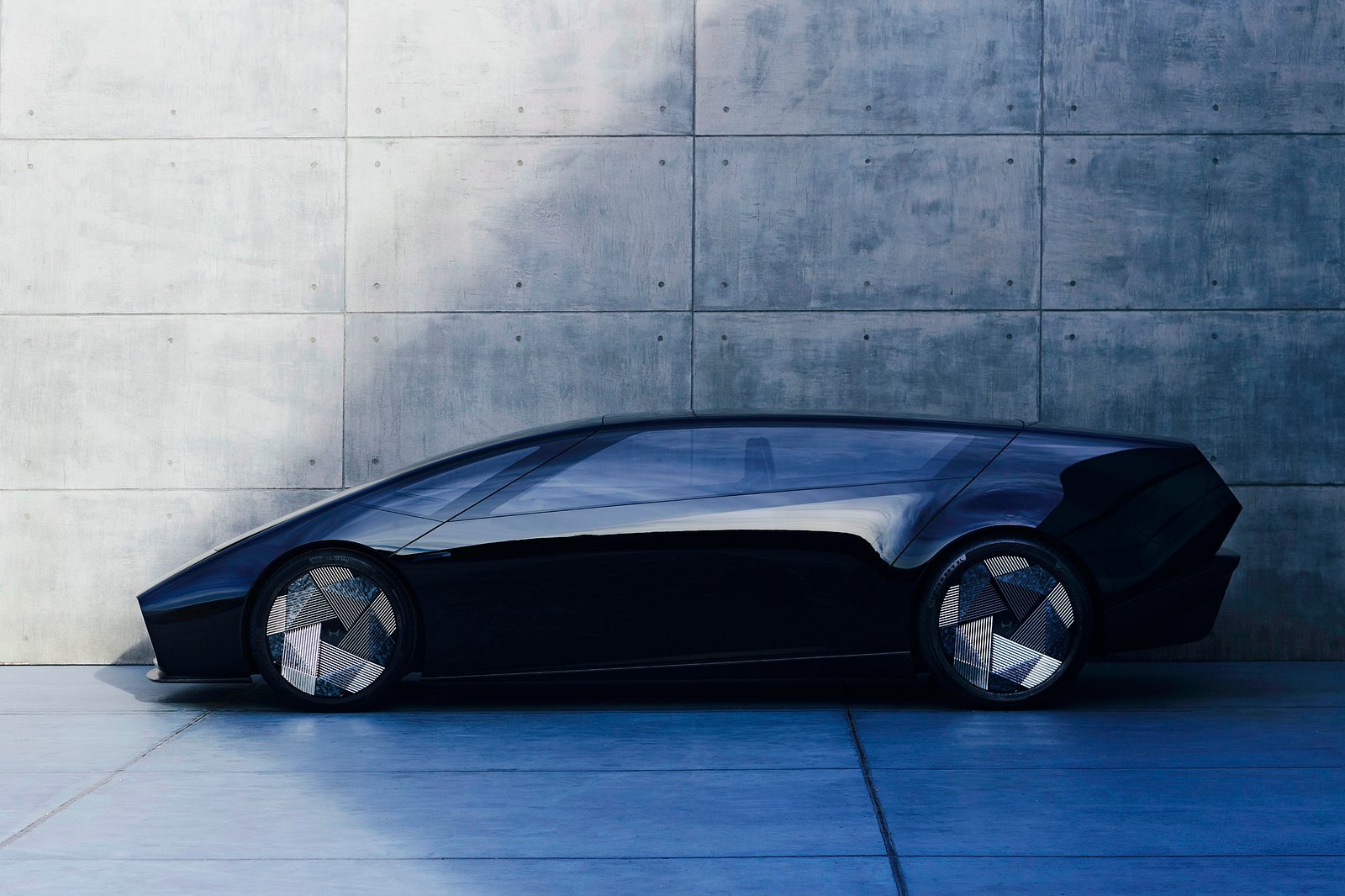


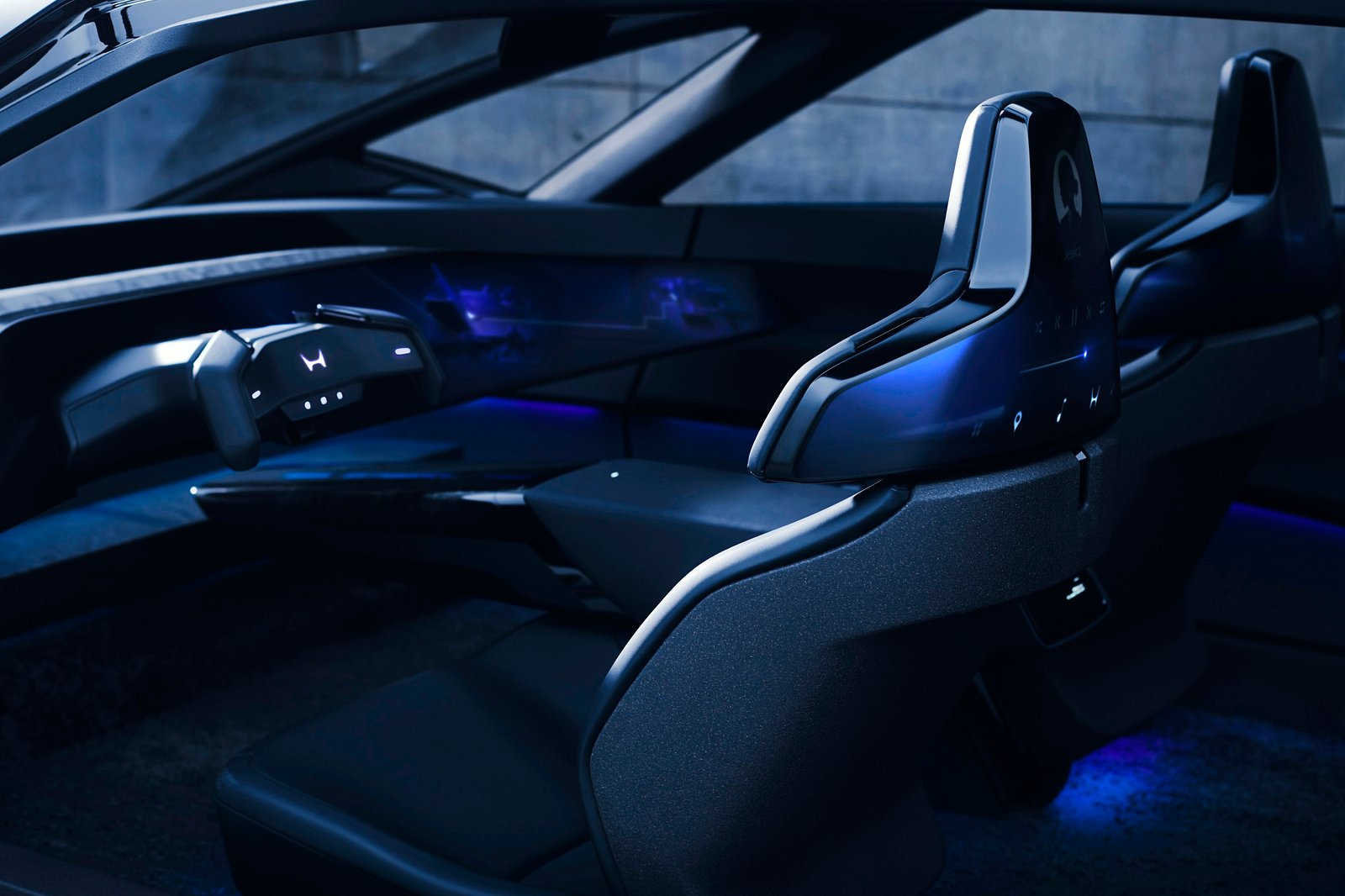
Despite not being scheduled for release in the United States, Honda has also showcased the Space-Hub at CES. This innovative concept showcases minivan proportions with a futuristic twist, potentially foreshadowing a future replacement for the Honda Odyssey. According to Honda, the design prioritizes visibility with numerous glass panels and a roomy interior. While the images display rear seats facing inward, it also mentions a “flexible space” that can transform into a versatile hub.
Honda guarantees that its 0 Series electric vehicles (EVs) will revolutionize car designs, incorporate cutting-edge automated driving technology, utilize advanced connected features, and enhance overall performance and battery efficiency by making batteries smaller. In particular, these EVs will offer charging times of less than 15 minutes for a recharge from 15% to 80%. Notably, unlike the Honda Prologue which relies on a platform developed by General Motors, these EVs will be entirely constructed by Honda from scratch.

